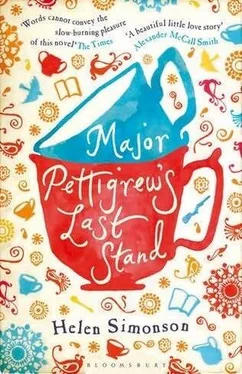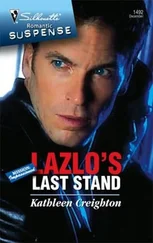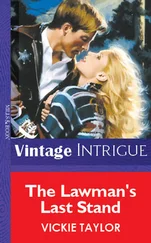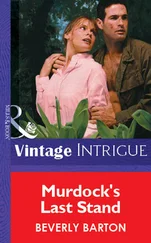They entered the public gardens, which began as a single bed crawling with yellow chrysanthemums, and then spread along two ever widening paths to create a long thin triangular space containing several different areas and levels. A sunken rectangle contained a bandstand, set in the middle of a lawn. Empty deck chairs flapped their canvas in the breeze. The council had just planted into concrete boxes the third or fourth set of doomed palm trees. There was an unshakable belief among the council’s executive committee that the introduction of palm trees would transform the town into a Mediterranean-style paradise and attract an altogether better class of visitor. The trees died fast. The day-trippers continued to bus in, wearing their cheap T-shirts and testing their raucous voices against the gulls. At the far end of the gardens, on a small circular lawn that lay open to the sea on one side, a thin, dark-skinned boy of four or five was nudging a small red ball with his feet. He played as if doing so were a hardship. When he gave the ball a sharp tap it bounced against a low bronze sign that said “No Ball Playing” in raised, polished letters and then rolled toward the Major. Feeling jovial, the Major attempted to chip the ball back, but it bounced sideways off his foot, struck an ornamental boulder, and rolled swiftly under a hedge of massed hydrangeas.
“Oi, there’s no football allowed ‘ere,” shouted a voice from a small green kiosk with a curly copper roof and shutters, which offered tea and an assortment of cakes.
“Sorry, sorry,” said the Major, waving his hands to encompass both the gray-faced, plump lady behind the kiosk counter and the small boy, who stood looking at the bushes as if they were as impenetrable as a black hole. The Major hurried over to the hedge and peered under, looking for some flash of red.
“What kind of park is it if a six-year-old can’t kick a football?” said a sharp voice. The Major glanced up to see a young woman who, though obviously of Indian origin, wore the universal uniform of the young and disenchanted. She was dressed in a rumpled parka the color of an oil spill, and long striped leggings tucked into motorcycle boots. Her short hair stuck out in a halo of stiff tufts as if she had just crawled out of bed, and her face, which might have been pretty, was twisted by a belligerent look as she faced the kiosk worker.
“There won’t be no flowers left if all the kids trample about with balls all day,” said the kiosk lady. “I don’t know what it’s like where you come from, but we try to keep things nice and genteel around here.”
“What d’you mean by that?” The young woman scowled. The Major recognized the abrasive northern tone he associated with Marjorie. “What are you saying?”
“I’m not saying nothing,” replied the lady. “Don’t get all shirty with me-I don’t make the rules.” The Major scooped up the somewhat muddy ball and handed it to the boy.
“Thank you,” said the boy. “I’m George, and I don’t really like football.”
“I don’t really like it, either,” said the Major. “Cricket is the only sport I really follow.”
“Tiddlywinks is a sport, too,” said George with a serious expression. “But Mum thought I might lose the bits if I brought them to the park.”
“Now that you bring it up,” said the Major, “I’ve never seen a sign saying ‘No Tiddlywinking’ in any park, so it might not be such a bad idea.” As he straightened up, the young woman hurried over.
“George, George, I’ve told you a thousand times about talking to strange men,” she said in a tone that identified her as the child’s mother rather than an older sister, as the Major had first thought.
“I do apologize,” he said. “It was entirely my fault, of course. Bit of a long time since I played any football.”
“Silly old cow ought to mind her own business,” said the young woman. “Thinks she’s in a uniform instead of an apron.” This was said loud enough to carry back to the kiosk.
“Very unfortunate,” said the Major in as noncommittal a voice as possible. He wondered whether he and Mrs. Ali would have to find an alternative source for tea. The kiosk lady was glaring at them.
“The world is full of small ignorances,” said a quiet voice. Mrs. Ali appeared at his elbow and gave the young woman a stern look. “We must all do our best to ignore them and thereby keep them small, don’t you think?” The Major braced himself for an abusive reply but to his surprise, the young woman gave a small smile instead.
“My mum always said things like that,” she said in a low voice.
“But of course we do not like to listen to our mothers,” said Mrs. Ali, smiling. “At least, not until long after we are mothers ourselves.”
“We have to go now, George. We’ll be late for tea,” said the young woman. “Say goodbye to the nice people.”
“I’m George, goodbye,” said the boy to Mrs. Ali.
“I’m Mrs. Ali, how do you do?” she replied. The young woman gave a start and peered at Mrs. Ali more closely. For a moment she seemed to hesitate, as if she wanted to speak, but then she appeared to decide against volunteering any further introductions. Instead, she took George by the hand and set off at a fast pace toward the town.
“What an abrupt young woman,” said the Major.
Mrs. Ali sighed. “I rather admire such refusal to bow before authority, but I fear it makes for a very uncomfortable daily existence.”
At the kiosk, the lady was still glaring and muttering something under her breath about people who thought they owned the place now. The Major tightened his upright stance and spoke in his most imposing voice, the one he had once reserved for quieting a room full of small boys.
“Do my eyes deceive me or are those real mugs you’re using for tea?” he said, pointing the head of his cane toward a row of thick earthenware mugs alongside the large brown teapot.
“I don’t hold with them polystyrene things,” said the woman, softening her expression just a bit. “Makes the tea taste like furniture polish.”
“How right you are,” said the Major. “Could we have two teas, please?”
“The lemon cake is fresh today,” she added as she slopped dark orange tea into two mugs. She was already cutting two huge slices as the Major nodded his head.
They drank their tea at a small iron table partly sheltered by an overgrown hydrangea rusty with the drying blooms of autumn. They were quiet and Mrs. Ali ate her slice of cake without any trace of the self-conscious nibbling of other ladies. The Major looked at the sea and felt a small sense of contentment quite unfamiliar in his recent life. A gin-and-tonic at the golf club bar with Alec and the others did not inspire in him any of the quietude, the happiness like a closely banked fire, which now possessed him. He was struck by the thought that he was often lonely, even in the midst of many friends. He exhaled and it must have come out as a sigh, for Mrs. Ali looked up from sipping her tea.
“I’m sorry, I haven’t asked you how you are doing,” she said. “It must have been difficult today, dealing with the solicitor?”
“These things have to be taken care of,” he said. “It’s always a bit of a mess, though, isn’t it? People don’t always take the time to leave clear instructions and then the executors have to sort it all out.”
“Ah, executors.” The dry hissing sound of the word conjured the scuttling of gray men, in ransacked rooms, looking for matches.
“Fortunately I am the executor for my brother,” he said. “Only there are one or two things he left rather vague. I’m afraid it will require delicate negotiation on my part to make things come out right.”
“He is lucky to have an executor of your integrity,” she said.
Читать дальше












